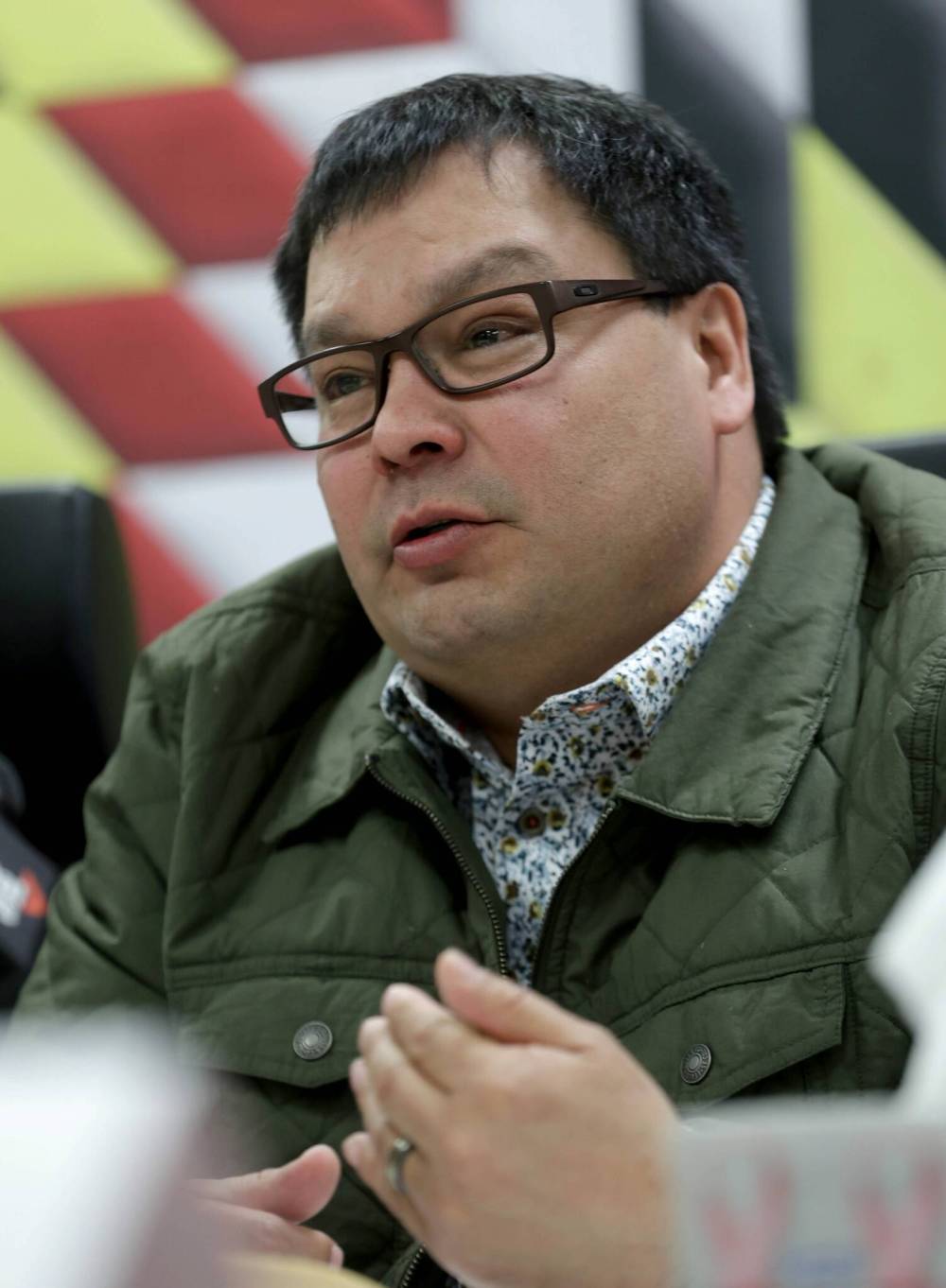Six years after a boil water advisory and one year after the community’s treatment plant was supposed to be operating, residents at Shamattawa First Nation still can’t drink their water.
The band will be in court next month asking a federal judge to rule First Nations people have a right to safe drinking water in their homes.
“Canada is putting the rights of our people on the back burner and other people are getting sick and youth are dying,” said Shamattawa Chief Jordna Hill at a news conference in Winnipeg on Wednesday.

RUTH BONNEVILLE / FREE PRESS FILES
Shamattawa First Nation Chief Jordna Hill.
“There is hopelessness and youth are pushed to suicides. Our youth and people deserve to live.”
Hill said he doesn’t understand why the federal government continues to fight a lawsuit the First Nation launched in 2022, as part of its battle to have the community’s water treatment plant fixed to produce clean drinking water. Fifty-eight other First Nations have joined the class-action lawsuit.
“Time and again the federal government has promised to do better and yet, here we are, fighting in court for a basic human right,” he said.
The chief has said Shamattawa is open to an out-of-court solution but Ottawa has never responded.
Indigenous Services Canada could not be reached for comment.
In a statement of defence filed last year, the federal government said it had given $25.6 million in funding for improvements to the plant.
Ottawa also said it had provided a temporary portable water filtration system that was still in the community.
Indigenous Services Canada said the water problems the community faces are due to methane in the groundwater, the climate, the local terrain and heavy silting in nearby water sources.
A new water treatment plant was installed in 1998, water and sewer services was expanded to the entire community in 2020, and the plant was upgraded in 2010 and again in 2022. The latest upgrade was intended to serve the community until 2042, the feds said.
The Indigenous Services Canada website says while the community completed repairs to the plant, they weren’t successful and additional expansion and upgrades are nearing completion.
Hill said having unclean water impacts the mental health of community members and some have developed rashes and gotten sick.
He said there has been a homicide and suicide in the community over the last few days and some don’t see a future there because they don’t know when there will be clean drinking water.
‘Time and again the federal government has promised to do better and yet, here we are, fighting in court for a basic human right’– Shamattawa First Nation Chief Jordna Hill
“We are here to ask for equality the way people in Winnipeg and other cities have drinking water,” Hill said. “We want the same.”
Dennis White Bird said the Assembly of Manitoba Chiefs stands in solidarity with the First Nations represented in the lawsuit.
Speaking on behalf of AMC Grand Chief Cathy Merrick, White Bird said if the same situation happened in Winnipeg, or any other Canadian city, the government would act immediately
“It is deeply concerning and unreasonable that thousands of First Nation people continue to live without access to safe drinking water,” White Bird said.
“In this era of reconciliation, First Nations are still forced to fight for basic rights that other demographics in Canada enjoy so freely.”
Alana Robert, a Toronto-based lawyer who represents Shamattawa, said past auditor general reports have found the “federal government, year after year, is chronically underfunding water infrastructure on reserve, but also the operation and maintenance costs.”
The suit is scheduled to be heard in Ottawa next month.
jura.mcillraith@freepress.mb.ca
kevin.rollason@freepress.mb.ca

Kevin Rollason
Reporter
Kevin Rollason is a general assignment reporter at the Free Press. He graduated from Western University with a Masters of Journalism in 1985 and worked at the Winnipeg Sun until 1988, when he joined the Free Press. He has served as the Free Press’s city hall and law courts reporter and has won several awards, including a National Newspaper Award. Read more about Kevin.
Every piece of reporting Kevin produces is reviewed by an editing team before it is posted online or published in print — part of the Free Press‘s tradition, since 1872, of producing reliable independent journalism. Read more about Free Press’s history and mandate, and learn how our newsroom operates.
Our newsroom depends on a growing audience of readers to power our journalism. If you are not a paid reader, please consider becoming a subscriber.
Our newsroom depends on its audience of readers to power our journalism. Thank you for your support.